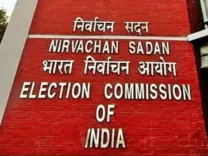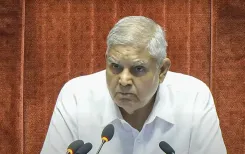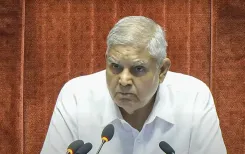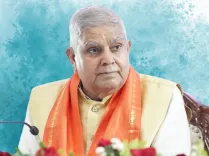What Happens When the Vice President Resigns?
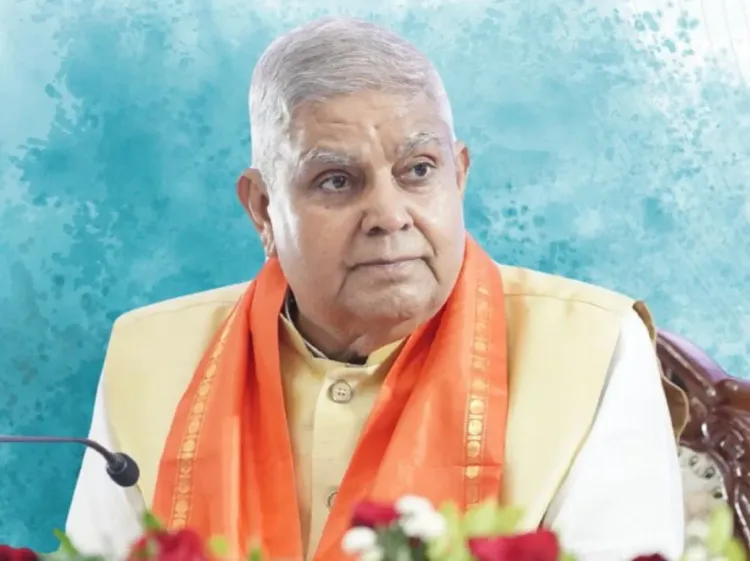
Synopsis
Key Takeaways
- The Vice President's resignation activates constitutional provisions.
- The Deputy Chairman ensures continuity in the Rajya Sabha.
- This transition prevents any procedural disruptions.
- Legislative processes remain uninterrupted during the election of a new Vice President.
- India's constitutional design safeguards democratic governance.
New Delhi, July 22 (NationPress) The resignation of Vice President Jagdeep Dhankhar has once again spotlighted the constitutional mechanisms that ensure continuity within India's parliamentary system.
While mid-term resignations from the Vice Presidency are uncommon, they are not unprecedented, and the Constitution provides a clear pathway for subsequent actions.
Dhankhar's immediate resignation was formally accepted by the President, in accordance with Article 67(a), which permits voluntary resignation. This situation raises significant questions regarding leadership in the Rajya Sabha, as the Vice President acts as its ex-officio Chairman.
However, legal analysts and parliamentary insiders have emphasized that a constitutional crisis is unlikely.
“With the acceptance of Dhankhar's resignation, constitutional provisions are activated,” noted Virag Gupta, a Supreme Court attorney and constitutional authority.
“Historically, many Vice Presidents have resigned, and in their absence, the Deputy Chairman of the Rajya Sabha undertakes their duties, given that the Vice President serves as the ex-officio Chairman of the Upper House.”
This institutional framework ensures that legislative activities proceed without interruption. Gupta highlighted that this transition will not result in a constitutional crisis.
“The Vice President plays a critical procedural role in Parliament, but since the Deputy Chairman's position in the Rajya Sabha is filled—unlike in the Lok Sabha—the leadership of the chamber remains stable.”
The resignation provision is well established, and in Dhankhar's absence, the Deputy Chairman is responsible for presiding over the sessions.
This transition is grounded in constitutional protocol, which guarantees that the legislative process continues without disruption.
Interestingly, while the Deputy Speaker's role in the Lok Sabha has been vacant for an extensive duration, the Rajya Sabha has preserved its leadership structure, thus ensuring operational stability. The presence of an active Deputy Chairman is crucial for insulating Parliament from procedural paralysis during this transition period.
Until a new Vice President is elected—a process mandated to occur within six months—the Deputy Chairman will oversee proceedings and maintain parliamentary standards.
While the Vice President's role in Indian governance is not executive, it is vital for the Upper House's functioning. Hence, his resignation is not simply a personal or political matter; it triggers a series of institutional responses that uphold democratic continuity.
As the political landscape prepares for the election of a new Vice President, the operation of the Rajya Sabha remains secure, reflecting the resilience and foresight embedded in India’s constitutional framework.


